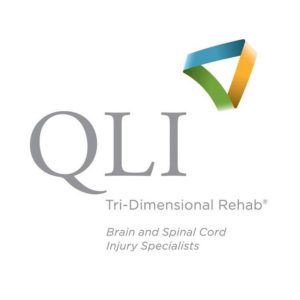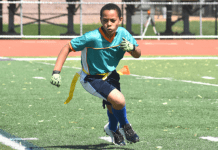Do your kids play sports?

My children’s health and happiness are my top priorities.
Any parent can tell you this is true. But what happens when health and happiness enter into fierce competition? I’m talking about sports. To be more specific:
Football.
The great American pastime. It’s not phasing out of popularity anytime soon, especially in Nebraska (GBR)!
At the same time, research has found that mild head injuries, such as concussions, can have a life-long impact. So what’s a mom to do when her child loves football but believes his or her health is at risk by playing?
What if my kid is really good at football?
We’re talking college scholarships, set-them-up-for-life kind of good.
Let’s look at the facts to help you measure the benefits/risks of playing any contact sport.
According to a piece from an editorial in Times Magazine, no playing is worth the risk. You might recognize the name Bennet Omalu, the physician and forensic pathologist who discovered chronic traumatic encephalopathy (CTE). According to Dr. Omalu, “If a child who plays football is subjected to advanced radiological and neurocognitive studies . . . there can be evidence of brain damage at the cellular level. . . even if there were no documented concussions or reported symptoms. If that child continues to play over many seasons, these cellular injuries accumulate to cause irreversible brain damage . . . .”
How Much Is Too Much?
And is football the only sport we should be focusing on?
Dr. Munro Cullum, a neuropsychologist, feels the recent light brought to head injuries is beneficial for allowing players to have time to heal before hitting the field again. At the same time, he is concerned that we have begun to trend too far in the extreme of keeping kids out of sports due to fear of injury.
According to Dr. Cullum in his piece “Is football bad for the brain? We know little about the long-term effects of concussions,” it’s impossible to know “who is most likely to suffer a concussion, who will take longer to recover, how anatomic or genetic differences influence concussions, and who may be at risk of prolonged symptoms . . . .” He goes on to state that, while many studies have been conducted on concussions in children, sample sizes are perilously small making the findings unconnected.
Here’s A Bright Side
In one study, 3,904 men who graduated in the 1950s were found to have no difference in cognitive function or decline when comparing individuals who played football and those who chose not to. Even brighter, those men who did play football actually proved to be less likely to exhibit depressive symptoms in their golden years.
Let’s ask a local expert.

Nationally renowned brain injury center, QLI, employs experts in brain rehabilitation. Director of Psychological Services and Neuropsychologist, Dr. Jeff Snell, provided information about concussive symptomology and return to play and learning guidelines.
First off, let’s review the symptomology of a concussion. Recognizing that an injury has occurred is the first step in advocating for your child in return to play and learn guidelines.
Immediate symptoms of a concussion include:
- Headache
- Confusion
- Disruption of memory (recalling new information)
- Dizziness
- Ringing Ears
- Vomiting
- Blurry Vision
- Fatigue/Drowsiness
- Possible loss of consciousness immediately following injury.
Dr. Snell notes that “Concussion symptoms, which may occur for some time (days) after injury include headaches, memory and concentration difficulties, irritability, light/noise sensitivity, disruption of sleep patterns, and mood changes (typically depressed).”
It is important to know that most symptoms resolve in a matter of hours to days, but some symptoms may persist for weeks. In some cases, the signs can be subtle. Therefore, Dr. Snell indicated that an evaluation of an individual suspected of experiencing a concussion is required by the Nebraska Concussion Awareness Act before resuming sports and academic participation.
Return to play and learn guidelines can be found at www.nebsportsconcussion.org. These guidelines should be strictly followed to ensure the health and safety of anyone who has experienced a concussion. This is perhaps even more important for anyone playing a contact sport as the likelihood of suffering additional head injuries is higher. Dr. Snell indicated that additional injuries during the critical healing time can result in far more severe consequences to the brain. What was once a mild concussion may become a traumatic brain injury unless appropriate precautions are taken.
On a comforting note, Dr. Snell stated the condition CTE is believed to develop over many years of brain injuries. Therefore, a season or two of football may not be detrimental to your child’s health.

Here’s my laymen opinion
I believe it is premature to pull our kids from the fields of contact sports. While the thought of my baby getting hurt, especially from a head injury, makes me cringe, we are more aware now than ever of how much time is needed for concussions to heal.
We must also take into consideration the lifestyle and predisposing factors that make us all susceptible to different things. Currently, we don’t know what predispositions may lend to one brain being more affected by a concussion than another.
Also me – Praying my kid doesn’t want to play football.
You do you, Mama.

















